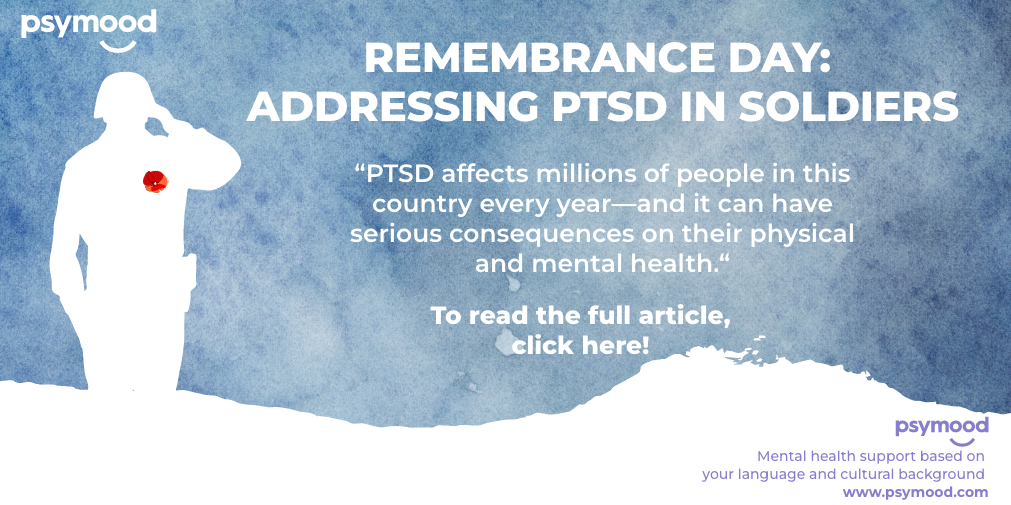Remembrance Day: Addressing PTSD in Soldiers
Why We Remember
As we all know, Remembrance Day is a day when we honour those who fought for our country, and remember the sacrifices they made for us. Remembrance Day we remember and commemorate the 118,000 Canadians who have died in military service and those who fought for our country. On November 11th, we remember all the fathers, brothers, mothers, and sisters who have fought and are still fighting for our country.
We pause to remember those whose lives were changed by war.
We pause to honour those who have served and continue to serve, and their families.
We pause for a moment of silence to remember those whose lives were changed by wars; to honour the veterans and soldiers who have served and those that continue to do so, as well as their families. A moment for those that have been lost and the sacrifices that were made.
And today, we remember the service and sacrifice of all veterans, and their families. We also recognize that PTSD is a serious issue for those who live with it every day.
Mental Health in Veterans
Veterans are an important part of our community, but many of them aren’t able to enjoy the same freedoms that civilians enjoy. PTSD affects millions of people in this country every year—and it can have serious consequences on their physical and mental health. “In Canada, it is estimated that up to 10% of war zone Veterans—including war-service Veterans and peacekeeping forces—will experience PTSD, while others may experience at least some of the symptoms associated with this condition”
Mental Health in Current Soldiers
Mental health does not only affect past war veterans. It is an issue that continues to affect our current soldiers as well. Many soldiers that are fighting for our country experience very high levels of depression, anxiety, alcohol and substance use, and most commonly PTSD.
What is PTSD
PTSD is a serious condition that can happen to anyone who has been in a traumatic event. It can affect any age, gender, and race. PTSD occurs after an individual has experienced a traumatizing event such as being in battle. Some symptoms of PTSD include;
- Stressful memories, images, or flashbacks of the incident.
- Nightmares of the event.
- Physiological symptoms such as sweating, increased heart rate, muscle tension, etc.
- Sleeping difficulties/insomnia.
- Easily irritated or becomes angry easily.
- Jumpy or scares easily.
- Behavioural issues such as avoiding events that may trigger flashbacks.
- Memory gaps.
- Losing interest in activities.
- Appearing/sounding flat and lacking emotion.
- Depression, (50% of people with PTSD also have high levels of depression).
Getting Help
There is no one size fits all cure for PTSD. Everyone experiences and processes trauma differently and thus the healing journey is different for everyone. Some people can recover from PTSD on their own over time with the support of close family and friends, while others need a little more professional support. There are many resources and help available for veterans and current soldiers who are dealing with PTSD and other mental health issues. Canada offers “Mental health and wellness” services for releasing and former members of the CAF or RCMP, family members and caregivers.
Final Thoughts
We hope that this Remembrance Day will inspire us all to remember those who have given so much for us. May we never forget what they did for us so that others may continue doing so in the future!
PsyMood is a digital tool designed to help you find the support you need in the language that you are most comfortable with. PsyMood considers cultural background, geographical location, interests, and personal needs, amongst other factors, to pair you with service providers for either online or in-person therapy sessions.
Check out our other blogs here!


.png)
.png)
.png)
Recent Comments